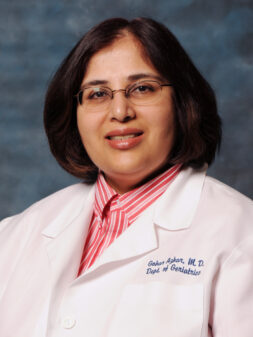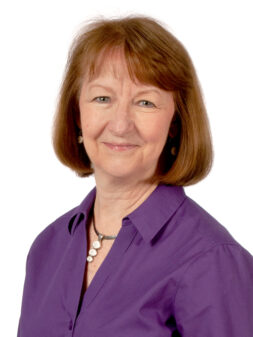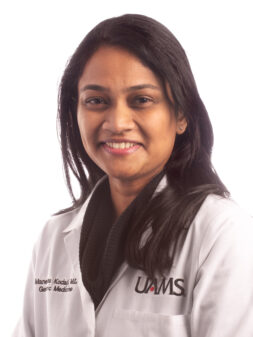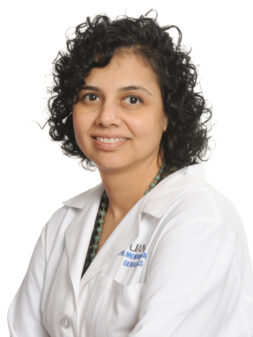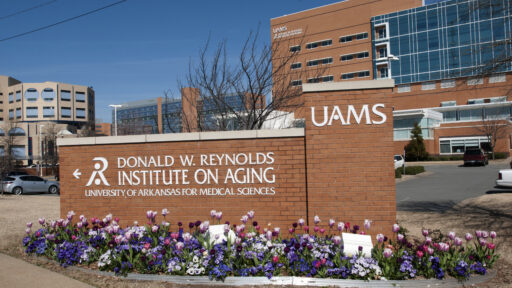What is dementia?
Dementia is a loss of mental functions that is severe enough to affect your daily life and activities. These functions include:
- Memory
- Language skills
- Visual perception (your ability to make sense of what you see)
- Problem solving
- Trouble with everyday tasks
- The ability to focus and pay attention
It is normal to become a bit more forgetful as you age. But dementia is not a normal part of aging. It is a serious disorder which interferes with your daily life.
What are the types of dementia?
The most common types of dementia are known as neurodegenerative disorders. These are diseases in which the cells of the brain stop working or die. They include:
- Alzheimer's disease, which is the most common form of dementia among older people. People with Alzheimer's have plaques and tangles in their brain. These are abnormal buildups of different proteins. Beta-amyloid protein clumps up and forms plaques in between your brain cells. Tau protein builds up and forms tangles inside the nerve cells of your brain. There is also a loss of connection between nerve cells in the brain.
- Lewy body dementia, which causes movement symptoms along with dementia. Lewy bodies are abnormal deposits of a protein in the brain.
- Frontotemporal disorders, which cause changes to certain parts of the brain:
- Changes in the frontal lobe lead to behavioral symptoms
- Changes in the temporal lobe lead to language and emotional disorders
- Vascular dementia, which involves changes to the brain's blood supply. It is often caused by a stroke or atherosclerosis (hardening of the arteries) in the brain.
- Mixed dementia, which is a combination of two or more types of dementia. For example, some people have both Alzheimer's disease and vascular dementia.
Other conditions can cause dementia or dementia-like symptoms, including:
- Creutzfeldt-Jakob disease, a rare brain disorder
- Huntington's disease, an inherited, progressive brain disease
- Chronic traumatic encephalopathy (CTE), caused by repeated traumatic brain injury
- HIV-associated dementia (HAD)
Who is at risk for dementia?
Certain factors can raise your risk for developing dementia, including:
- Aging. This is the biggest risk factor for dementia.
- Smoking
- Uncontrolled diabetes
- High blood pressure
- Drinking too much alcohol
- Having close family members who have dementia
What are the symptoms of dementia?
The symptoms of dementia can vary, depending on which parts of the brain are affected. Often, forgetfulness is the first symptom. Dementia also causes problems with the ability to think, problem solve, and reason. For example, people with dementia may:
- Get lost in a familiar neighborhood
- Use unusual words to refer to familiar objects
- Forget the name of a close family member or friend
- Forget old memories
- Need help doing tasks that they used to do by themselves
Some people with dementia cannot control their emotions and their personalities may change. They may become apathetic, meaning that they are no longer interested in normal daily activities or events. They may lose their inhibitions and stop caring about other peoples' feelings.
Certain types of dementia can also cause problems with balance and movement.
The stages of dementia range from mild to severe. In the mildest stage, it is just beginning to affect a person's functioning. In the most severe stage, the person is completely dependent on others for care.
How is dementia diagnosed?
Your health care provider may use many tools to make a diagnosis:
- A medical history, which includes asking about your symptoms
- A physical exam
- Tests of your thinking, memory, and language abilities
- Other tests, such as blood tests, genetic tests, and brain scans
- A mental health evaluation to see whether a mental disorder is contributing to your symptoms
What are the treatments for dementia?
There is no cure for most types of dementia, including Alzheimer's disease and Lewy body dementia. Treatments may help to maintain mental function longer, manage behavioral symptoms, and slow down the symptoms of disease. They may include:
- Medicines may temporarily improve memory and thinking or slow down their decline. They only work in some people. Other medicines can treat symptoms such as anxiety, depression, sleep problems, and muscle stiffness. Some of these medicines can cause strong side effects in people with dementia. It is important to talk to your health care provider about which medicines will be safe for you.
- Occupational therapy to help find ways to more easily do everyday activities
- Speech therapy to help with swallowing difficulties and trouble speaking loudly and clearly
- Mental health counseling to help people with dementia and their families learn how to manage difficult emotions and behaviors. It can also help them plan for the future.
- Music or art therapy to reduce anxiety and improve well-being
Can dementia be prevented?
Researchers have not found a proven way to prevent dementia. Living a healthy lifestyle might influence some of your risk factors for dementia.
Courtesy of MedlinePlus from the National Library of Medicine.
Syndicated Content Details:
Source URL: https://medlineplus.gov/dementia.html?utm_source=mplusconnect&utm_medium=service
Source Agency: National Library of Medicine

